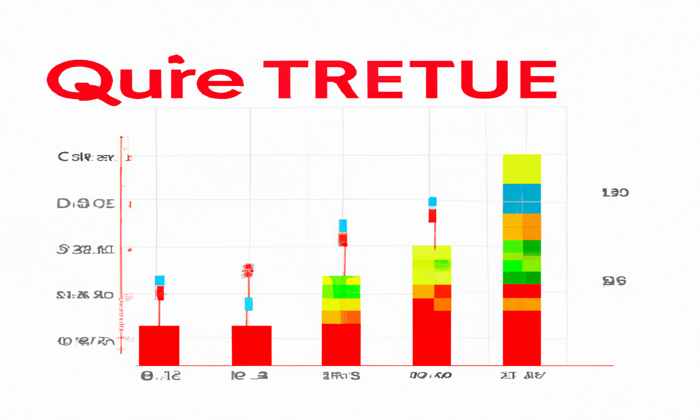The U.S. crypto industry is poised for transformative changes as it garners unprecedented support from the White House. According to Michael Sonnenshein, COO of Securitize, this shift signifies a departure from the previous administration’s stance of regulating the sector through litigation. With the establishment of the SEC crypto task force, there is a fresh focus on collaboration rather than enforcement, creating an environment ripe for innovation. This new regulatory framework is expected to catalyze the rise of tokenized assets, providing investors with enhanced liquidity, daily dividends, and 24/7 access—attributes rarely found in traditional investment avenues. As companies like Securitize lead the charge, the potential for tokenized treasuries and equities to flourish is becoming increasingly evident, inviting more participants into the evolving landscape of digital finance.
The rapidly evolving landscape of cryptocurrencies in the U.S. is entering a new era marked by increasing governmental support and progressive regulations. This shift, championed by leaders like Michael Sonnenshein from Securitize, is ushering in a wave of innovation that moves beyond mere compliance enforcement. With the newly formed SEC crypto task force actively engaging with the industry, the focus is now on harnessing the potential of digitized assets to enhance investor experiences. Such developments include the creation of tokenized financial instruments that allow for real-time trading and access around the clock, diverging significantly from conventional financial products. As interest in these innovative opportunities grows, the future of U.S. digital assets looks promising, paving the way for greater participation and investment.
The Evolution of the U.S. Crypto Industry
The U.S. crypto industry is witnessing a transformative phase, especially with the current administration showing a distinct shift in policy. As highlighted by Michael Sonnenshein, the Chief Operating Officer of Securitize, the White House is no longer solely focused on enforcement but is now willing to engage and innovate within the space. This marks a departure from the previous era, where crypto companies were met with skepticism and a regulatory framework that seemed more punitive than supportive.
With the appointment of a dedicated head for crypto at the White House and the establishment of the SEC crypto task force, businesses are beginning to feel a renewed sense of opportunity in the sector. This change lays the groundwork for collaboration that could lead to significant advancements in areas like tokenized assets, which are rapidly becoming a key focus for many firms seeking to navigate this new regulatory landscape.
Understanding Tokenized Assets
Tokenized assets represent a breakthrough innovation in the financial sector, allowing for the fractional ownership of real-world assets through blockchain technology. By facilitating the conversion of physical assets into digital tokens, the U.S. crypto industry is positioned to unlock formidable value for investors. Companies like Securitize are at the forefront of this movement, having reportedly managed nearly $2.5 billion in assets, highlighting the demand and potential for such offerings.
The benefits of tokenization extend beyond mere ownership; they provide investors with unparalleled liquidity, enabling them to have more control over their investments. With the integration of tokenized assets into decentralized finance (DeFi) structures, individuals can access continuous trading opportunities, receive daily dividends, and enjoy a level of engagement that traditional investing avenues seldom provide.
The Role of the SEC in Crypto Regulation
The SEC has historically played a pivotal role in establishing the regulatory framework that governs the U.S. crypto industry. However, recent developments, including the formation of a dedicated crypto task force, illustrate a shift towards a more constructive approach. As businesses seek clarity on regulations surrounding tokenized assets, it is crucial that the SEC fosters an environment conducive to innovation rather than one that stifles it through enforcement.
Ongoing collaboration between regulators and industry leaders is essential for navigating the complexities of crypto regulation. Leadership transitions within the SEC offer an excellent opportunity for dialogue, where stakeholders can voice concerns and work towards establishing guidelines that support innovation while protecting investors. This collaborative spirit could pave the way for more comprehensive and insightful regulations regarding tokenized securities.
Innovating with Tokenized Treasuries
Securitize’s partnership with BlackRock on the BUIDL tokenized treasury fund exemplifies how traditional institutions can adapt to the advancing crypto landscape. This fund not only provides the innovative mechanism of real-time redemptions but also integrates seamlessly with DeFi ecosystems. Such collaborations are crucial for bridging the gap between established finance and the burgeoning world of cryptocurrency.
As tokenized treasuries continue to gain traction, we can expect the U.S. crypto industry to experience explosive growth. With reports indicating that Securitize has achieved growth rates exceeding 500% for tokenized treasuries, it’s evident that there is an increasing appetite among investors for these new types of assets. The ongoing support from entities like the SEC will play a critical role in ensuring that these innovations can flourish while maintaining investor safeguards.
The Impact of Regulatory Changes on Investor Experience
The recent regulatory changes offer a unique opportunity for enhancing the investor experience in the crypto space. Michael Sonnenshein emphasized the pivotal role of these changes in moving towards a model that supports tokenized asset investments. With rights such as instant liquidity and 24/7 access, investors are poised to benefit from a more dynamic investing environment that contrasts starkly with traditional practices.
The ability to receive daily dividends and participate in innovative financial products not only democratizes access to investment opportunities but also enhances overall market engagement. This shift ensures a richer and more efficient experience, making the crypto sector appealing to both seasoned investors and newcomers alike, ultimately driving growth and fostering broader adoption.
Future Outlook for the U.S. Crypto Sector
The outlook for the U.S. crypto industry appears promising, especially in light of recent initiatives from the White House and the SEC. With regulatory frameworks being designed to foster innovation, stakeholders can work collaboratively towards an environment that encourages creativity and growth within the crypto sector. As tokenized assets gain popularity, expectations for continued expansion are high.
Moreover, with technological advancements creeping into every corner of the financial world, the U.S. crypto industry is poised to play a significant role moving forward. By embracing collaborations with regulatory bodies and launching new products that appeal to a broad audience, the future could lead to unprecedented opportunities, ensuring that the U.S. remains a leader in crypto innovation.
Collaboration Between Crypto Firms and Governments
The potential for collaboration between crypto firms and government bodies is pivotal in shaping the future of the industry. As seen in the remarks from Michael Sonnenshein, the transformative approach taken by the White House indicates a willingness to engage with crypto companies in dialogue. This openness is essential for crafting regulations that protect consumers while encouraging innovation.
The establishment of the SEC’s crypto task force signifies a step towards a more integrated approach to governance. By allowing stakeholders a voice in regulatory development, a more comprehensive understanding of the industry’s nuances can be fostered, leading to regulations that support the growth of key sectors such as the tokenization of assets.
The Rise of Decentralized Finance (DeFi)
Decentralized Finance (DeFi) is rapidly transforming the financial landscape, offering compelling alternatives to traditional financial products. The integration of tokenized assets into DeFi systems marks a significant step in making finance more accessible and democratic. As firms like Securitize push the boundaries of what’s possible with tokenization, the DeFi ecosystem is set to grow exponentially.
Investors are becoming increasingly aware of the advantages DeFi offers, such as increased liquidity and enhanced control over their investments. This shift towards decentralized solutions aligns well with the broader trends of consumer empowerment and financial inclusion, making it essential for the U.S. crypto industry to embrace and integrate these innovations into their offerings.
Understanding Securitize and Its Role in Tokenization
Securitize has emerged as a key player in the field of asset tokenization, enabling the conversion of a diverse array of assets into tokenized forms. By harnessing blockchain technology, Securitize has successfully managed billions in assets, showcasing the platform’s viability and appeal in modern finance. Its contributions to the tokenization space can significantly impact how investors interact with traditional assets.
With the capacity to facilitate easy access and liquidity for investors, Securitize is at the frontier of a financial revolution. Its strategic partnerships, such as the one with BlackRock for the BUIDL tokenized treasury fund, highlight the synergy that can be achieved when traditional finance meets innovative technology. This collaboration serves as a blueprint for future initiatives aimed at expanding the use of tokenized assets in the financial landscape.
Frequently Asked Questions
What is the significance of the SEC crypto task force in the U.S. crypto industry?
The SEC crypto task force plays a crucial role in the U.S. crypto industry by actively engaging with businesses to develop regulatory frameworks. This task force, established amid a shift towards a more collaborative regulatory environment, aims to ensure compliance while fostering innovation, particularly in areas like tokenized assets.
How is tokenized asset growth impacting the U.S. crypto industry?
Tokenized assets are significantly impacting the U.S. crypto industry by increasing liquidity and access for investors. Platforms like Securitize have enabled the movement of billions in assets onto public blockchains, providing benefits such as daily dividends and 24/7 access, which are reshaping traditional investment paradigms.
What changes has the Biden administration introduced for crypto regulation?
The Biden administration has shifted the U.S. crypto industry from a regime of regulation by enforcement to one encouraging innovation and dialogue. Key actions include appointing a head of crypto and establishing a SEC crypto task force aimed at facilitating constructive engagement between regulators and the crypto sector.
What is Securitize’s role in the tokenization of assets within the U.S. crypto industry?
Securitize is a leading player in the tokenization of assets within the U.S. crypto industry, managing the largest tokenization platform. The company has successfully tokenized nearly $2.5 billion in assets, enhancing investor experiences through features like real-time redemptions and integration with DeFi ecosystems.
What benefits do tokenized treasuries offer within the U.S. crypto landscape?
Tokenized treasuries offer numerous benefits within the U.S. crypto landscape, including instant liquidity, daily dividends, and 24/7 access to investments. These advantages are transforming traditional treasury management and making it easier for investors to engage with financial products.
How does the BUIDL tokenized treasury fund operate in the U.S. crypto market?
The BUIDL tokenized treasury fund operates by providing real-time redemptions and facilitating integrations with decentralized finance (DeFi) ecosystems. Collaborating with firms like BlackRock, it exemplifies how tokenized assets can optimize financial operations within the U.S. crypto market.
What future trends can we expect in the U.S. crypto industry regarding tokenized assets?
Future trends in the U.S. crypto industry are likely to focus on the continued growth of tokenized assets, with expectations of robust momentum propelled by regulatory advancements and increasing collaboration between crypto firms and regulators. This evolution may lead to redefined roles for accredited investors and broader access to real-world assets (RWAs).
| Key Point | Details |
|---|---|
| Change in Regulatory Engagement | The Biden administration is engaging more positively with the crypto sector compared to the previous administration. |
| Shift from Enforcement | Lawsuits have been dropped; new regulatory structures are being established. |
| Appointing a Head of Crypto | A dedicated head of crypto has been appointed by the White House to facilitate better relations. |
| Securitize’s Role | Securitize has tokenized nearly $2.5 billion in assets on public blockchains. |
| Benefits of Tokenization | Tokenization enhances investor experience with daily dividends, instant liquidity, and 24/7 access. |
| Partnerships | Securitize’s collaboration with BlackRock on the BUIDL tokenized treasury fund enables real-time redemptions. |
| Growth Metrics | Securitize has experienced growth rates exceeding 500% in tokenized treasuries. |
| Need for Regulatory Dialogue | Ongoing dialogue with regulators is essential to expand access to real-world assets. |
Summary
The U.S. crypto industry is at a pivotal moment, driven by a newfound supportive approach from the White House. As regulators shift their focus from enforcement to collaboration, opportunities for innovation in the sector are expanding. This evolution is critical for the development of tokenized assets, enhancing investor engagement and providing unprecedented access. With companies like Securitize leading the charge, the momentum within the U.S. crypto industry is expected to continue growing, paving the way for a bright and dynamic future.
The U.S. crypto industry is at a pivotal crossroads, bolstered by a newfound engagement from the White House, according to industry leaders like Michael Sonnenshein, COO of Securitize. As the Biden administration shifts from a stringent regulatory approach to one fostering innovation, initiatives such as the SEC crypto task force signal a promising future for businesses in this space. This evolving landscape not only enhances the appeal of tokenized assets but also drives a wave of optimism across the sector. With successful projects like BUIDL tokenized treasury demonstrating real-world applications, the momentum in the U.S. crypto industry is palpable. As more players enter the arena, the integration of crypto regulation within traditional finance could redefine investment experiences for millions, transforming how we view asset ownership and liquidity.
The cryptocurrency landscape in the United States, often referred to as the digital asset sector, is undergoing a dramatic transformation as it gains attention from government entities. Leaders in the sphere, such as Michael Sonnenshein of Securitize, emphasize the critical shift toward cooperative measures from regulators, including the newly formed SEC crypto task force. This environment paves the way for innovative financial solutions, particularly in the realm of tokenized assets, which promise enhanced investor advantages. As developments like the BUIDL tokenized treasury gain traction, the potential for revolutionizing ownership and liquidity within the economy comes to the forefront. The conversation around crypto legislation reflects a growing recognition of the need for a balanced approach to governance, ensuring both innovation and consumer protection.














